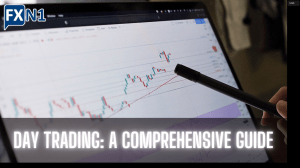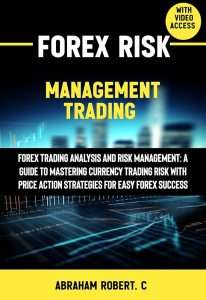Selecting the Right Forex Broker: A Comprehensive Guide
Unlock trading success! Discover how to choose the right Forex broker with our expert guide. Compare spreads, tools, and support – find your perfect match today! Avoid costly mistakes.

Selecting a Forex broker is a crucial first step for any aspiring trader. The right broker can significantly impact your trading experience, providing access to competitive spreads, advanced tools, and reliable customer support. Conversely, a poor choice can lead to frustration, losses, and a generally negative trading environment. Therefore, careful research and consideration are paramount before committing to any particular platform. This guide will equip you with the knowledge to navigate the complexities of the Forex market and select a broker that aligns with your specific needs and trading style.
Understanding the Forex Market
The foreign exchange market (Forex or FX) is a decentralized global marketplace where currencies are traded. It’s the largest and most liquid market in the world, operating 24 hours a day, five days a week. This constant activity provides numerous opportunities for traders, but also presents unique challenges. Understanding the intricacies of the Forex market is crucial before venturing into live trading. Key aspects to grasp include currency pairs, leverage, pips, spreads, and trading platforms.
Currency Pairs and Leverage
Forex trading involves buying one currency while simultaneously selling another. These are expressed as currency pairs, such as EUR/USD (Euro/US Dollar) or GBP/JPY (British Pound/Japanese Yen). Leverage magnifies potential profits but also increases risk. It allows traders to control larger positions with a smaller initial investment. Understanding leverage is critical for risk management, as it can lead to significant losses if not used cautiously.
Pips, Spreads, and Trading Platforms
A pip (point in percentage) is the smallest price movement in a currency pair. Spreads represent the difference between the bid (sell) and ask (buy) prices. Lower spreads are generally more favorable for traders, as they reduce trading costs. Trading platforms are the software interfaces used to execute trades. Different platforms offer varying levels of functionality, charting tools, and analytical capabilities. Choosing a platform that suits your trading style and technical expertise is essential.
Key Factors to Consider When Choosing a Forex Broker
Selecting the right Forex broker requires careful consideration of several key factors. These factors will influence your overall trading experience and ultimately contribute to your success or failure. Ignoring these elements can lead to significant problems down the line. Let’s explore some of the most important criteria to consider before making your decision.
Regulation and Licensing
A reputable Forex broker will be regulated by a recognized financial authority. Regulation ensures compliance with specific standards and protects traders from fraudulent activities. Look for brokers regulated by well-established bodies such as the Financial Conduct Authority (FCA) in the UK, the Commodity Futures Trading Commission (CFTC) in the US, or the Australian Securities and Investments Commission (ASIC) in Australia. Checking a broker’s regulatory status is a crucial first step.
Trading Platforms and Tools
The trading platform is your primary interface with the Forex market. A user-friendly platform with advanced charting tools, technical indicators, and automated trading capabilities can significantly enhance your trading experience. Consider factors such as ease of navigation, order execution speed, and the availability of mobile trading apps. Many brokers offer a demo account, allowing you to test the platform before committing real funds.
Spreads and Commissions
Spreads and commissions are the costs associated with trading Forex. Lower spreads and commissions are generally preferred, as they reduce your trading expenses. Compare the spreads offered by different brokers, paying attention to the average spread across various currency pairs. Some brokers charge commissions in addition to spreads, while others operate on a commission-free model. Understand the complete cost structure before making a decision.
Account Types and Minimum Deposits
Forex brokers offer various account types, each catering to different levels of experience and trading capital. Consider the minimum deposit requirements, leverage options, and available features for each account type. Choose an account that aligns with your trading style, risk tolerance, and available funds. Don’t feel pressured into opening an account with a higher minimum deposit than you’re comfortable with.
Customer Support and Education
Reliable customer support is crucial, especially when dealing with technical issues or urgent trading matters. Check the broker’s customer support channels, including phone, email, and live chat. A responsive and knowledgeable support team can make a significant difference in your trading experience. Educational resources, such as webinars, tutorials, and market analysis, can also be beneficial, especially for novice traders.
Security and Safety
Security is paramount when dealing with financial transactions. Ensure that the broker employs robust security measures to protect your funds and personal information. Look for brokers that utilize encryption technologies and adhere to strict security protocols. Read reviews and testimonials to gauge the broker’s reputation for security and data protection.
Top Forex Brokers: A Comparative Overview
Several Forex brokers stand out due to their reputation, features, and regulatory compliance. However, it is crucial to remember that the “best” broker depends on individual trading needs and preferences. This section presents a comparative overview of some prominent brokers, highlighting their strengths and weaknesses. This is not an exhaustive list and further independent research is always recommended.
- Broker A: Known for its competitive spreads and advanced trading platform, but may have a higher minimum deposit requirement;
- Broker B: Offers excellent customer support and educational resources, but spreads may be slightly wider than some competitors.
- Broker C: Popular for its user-friendly platform and wide range of account types, but lacks some advanced charting tools.
- Broker D: Highly regulated and known for its security measures, but may have limited educational resources.
- Broker E: Offers a variety of trading instruments beyond Forex, but may have higher commissions.
It’s important to thoroughly research each broker before making a decision. Consider your individual trading style, risk tolerance, and financial goals when comparing options. Visit each broker’s website, read reviews, and, if possible, try out their demo accounts to get a feel for their platforms and services.
Strategies for Successful Forex Trading
Choosing the right Forex broker is only one piece of the puzzle. Successful Forex trading also requires a well-defined trading strategy, risk management techniques, and continuous learning. Let’s explore some key strategies that can enhance your trading performance.
Developing a Trading Plan
A well-defined trading plan outlines your trading goals, risk tolerance, and specific strategies. It should include your entry and exit points, stop-loss orders, and position sizing. A trading plan provides structure and discipline, reducing impulsive decisions driven by emotions. Sticking to your plan is essential for long-term success.
Risk Management Techniques
Effective risk management is crucial to protect your trading capital. Never risk more than you can afford to lose. Utilize stop-loss orders to limit potential losses on individual trades. Diversify your portfolio by trading multiple currency pairs to reduce exposure to any single market. Consistent risk management is a cornerstone of successful trading.
Continuous Learning and Adaptation
The Forex market is dynamic and constantly evolving. Continuous learning is essential to stay ahead of the curve and adapt to changing market conditions. Stay updated on market news, economic events, and technical analysis techniques. Regularly review your trading performance and adjust your strategies accordingly.
Choosing the right Forex broker is a critical decision that impacts your trading success. Thorough research, careful consideration of key factors, and a well-defined trading plan are essential for maximizing your opportunities in the Forex market. Remember that consistent learning, disciplined risk management, and adaptability are crucial for long-term success. The Forex market offers significant potential rewards but also presents considerable risks. Proceed with caution and always prioritize responsible trading practices. A well-informed approach is your best bet for navigating this complex and rewarding environment. Remember to always seek independent financial advice before making any investment decisions.







